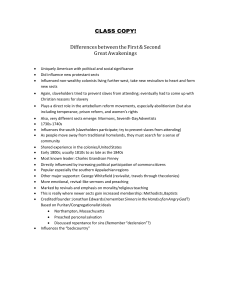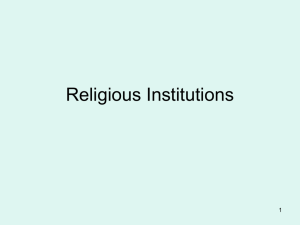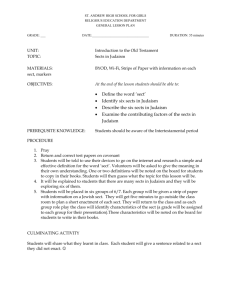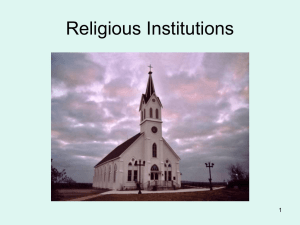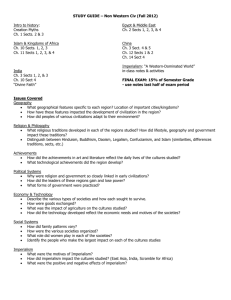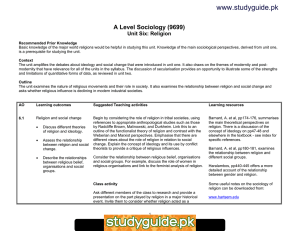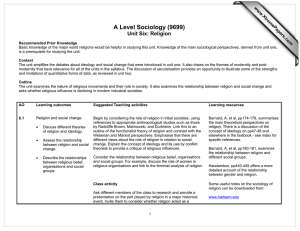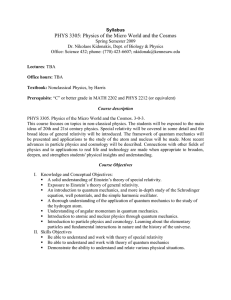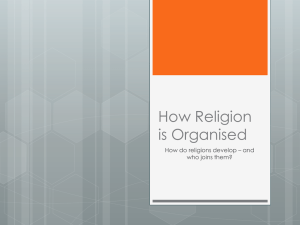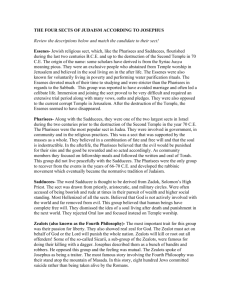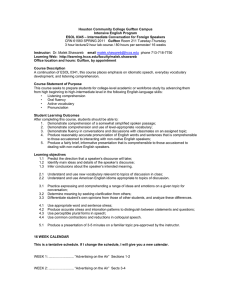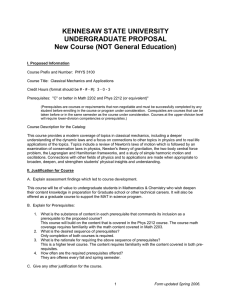A2 Sociology
advertisement
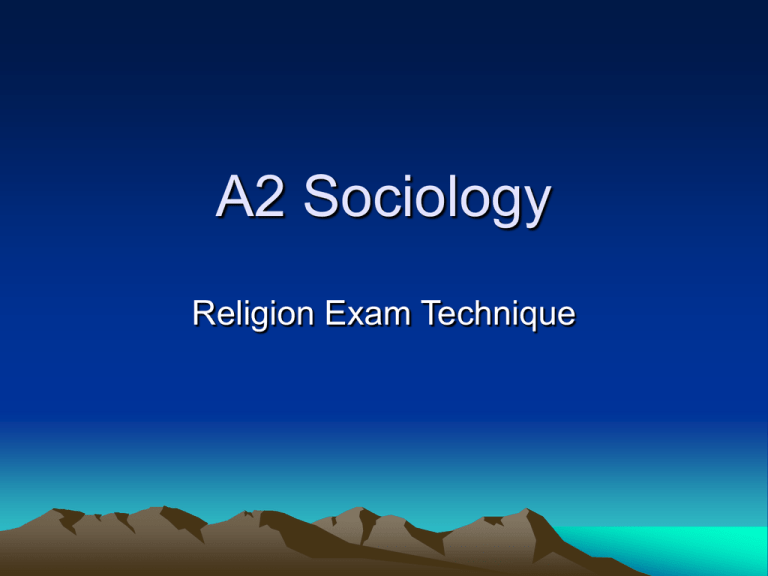
A2 Sociology Religion Exam Technique Modules • You will do two exams and one piece of coursework. • Exam modules are religion and the synoptic module of Crime and Deviance. • In the Religion exam you have an hour and a half. • You should devote about 60 mins to the essay, 15 mins to b, 10 to a, leaving 5 for checking etc Religion Exam • The paper will provide one item. • But unlike the AS exam the questions are split into two parts with one item. • There are 2 short questions asked. • There are two essay questions – you pick ONE. • This exam is worth 15% of your a level mark. Part one • 1 (a) Identify and briefly describe two differences between a church and a sect (Item A line 8) (8) • (b) Using material from item A and elsewhere, briefly examine some of the reasons why certain types of religious beliefs appeal to members of certain social groups. (Item A) (12) Part two • 2. “Religion today is not in decline; rather religious beliefs and practices are simply undergoing change” Assess this view in light of sociological evidence and arguments. (40) • OR • 3. Assess arguments and evidence for the view that in complex societies, religion is more likely to be a source of conflict and social division than of harmony and social integration. (40) How to score full marks 1 (a) • Don’t go into too much detail about the features of one type of organisation that you forget to say how it differs from the other type. • You could say that in many sects there is less division between the leaders and the members (partly because of the higher level of commitment and knowledge that sects require just to be a member) eg) sects have forms of ‘rotating leadership’ conducting services. • You could also look at other differences. Eg Troeltsch argues churches are closely linked to the state sects are often persecuted by the state( frequently with the backing of the church) How to score full marks 1b • Must do a brief conclusion to bring it together. You could use it to make explicit the main points about the poor, about social change and marginalisation, about the better off. • Use the item. Use it to help you get started. And you can use it to think about the church/ sect distinction; sects have ideas about appeal to the poor – churches are conservative so they attract the privileged. • Make use of sociological theories of religion. Weber – ‘theodicy of disprivilege’ Or Marx’s idea of religion supplies the oppressed with an opiate and justify the privilege of the ruling class. • Could also use NRM. Halvey’s study of Methodism or Niebhur on how a sect becomes upwardly mobile as its members beliefs make them more ‘respectable’. How to score full marks Q2 • Get to the question quickly so ensure that any definitions are linked to the question clearly. Eg) Durkheim’s def of religion makes it impossible to be in decline because its such a broad term. • Make a clear distinction between religious beliefs and practices and deal with each one in turn. • Religious practices. Which religious experiences are new or changing? Consider the problems of measuring them to see if they are declining, and the problems of addressing their meaning, which the item touches on. • Religious beliefs. The sample’s opening remarks about definitions could come in here to discuss what counts as religious. NRMs could be better used by examples. Could refer to Herzberg who looked at American religion – and link it to Weber’s definition from the beginning. • Conclusion needed – you could argue that religion is declining and changing. The changes are symptoms of its decline (Wilson argues) You should touch on belief and practice as the questions specifies both. Don’t forget • When asked to ‘briefly examine’ it is a good idea to bring in both evidence from examples or studies and arguments and concepts from theories. • Answers to ‘briefly examine’ do benefit from a brief conclusion. • Material that you might be familiar with from one context can often be used in another. Eg) knowledge of sects can be used for Qs on types of religious organisation, secularisation and religious and social change. • Qs on theories on religion, secularisation or religious movements can often use the same ideas and studies but for different purposes. So know the material and how to apply it. • ‘Assess’ Qs mean you need to focus on evaluation – making judgements based on arguments and evidence – not just describing what sociologist’s have said
